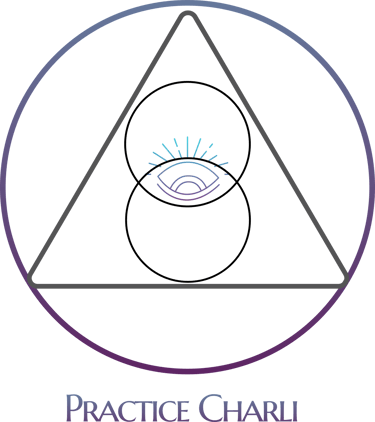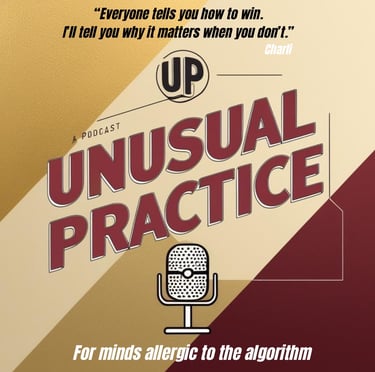
The Seductive Lie of War: How Conflict Became Humanity’s Most Dangerous Addiction
Why do humans keep glorifying war, even when it devastates lives and economies? This blog dives into war’s seductive myth, accidental inventions, and the deeper psychological need behind our obsession with conflict - and why meaning might be the real battlefield.
Charli | Cultural Disruptor | For UP podcast
6/16/20253 min read
Why We Keep Falling for the Glorious Lie of War
War has the best marketing team in history. That might sound cynical, but think about it. We’ve wrapped bloodshed in flags, uniforms, anthems, and film scores. We’ve turned mass violence into meaning. It’s not just about fighting anymore - it’s about identity, narrative, even self-worth.
We’ve romanticized war so deeply that it’s now inseparable from how many cultures define heroism. Whether it’s “supporting the troops,” saluting the flag, or crying at a slow-motion battle scene in a movie, we’ve learned to associate warfare with nobility, sacrifice, and purpose. The Romans called it “sweet and fitting to die for one’s country.” Today, we call it freedom.
But here’s the truth: most wars are fought by teenagers too young to drink and end with nations claiming victory over rubble and trauma. The real battle is rarely about territory or justice. It’s about belief, perception, and power - and the machinery that sells us the illusion of glory.
The Real Cost Behind the Flag
Let’s talk numbers. The U.S. spent over $2.3 trillion on Afghanistan in 20 years. Trillion. With a T. For comparison, ending global hunger costs around $40 billion a year. That means we could’ve fed the planet for nearly 60 years instead of propping up a war that ended with the Taliban taking selfies in the presidential office.
And what did we gain? Political instability, massive displacement, and PTSD - not just among soldiers but civilians, too. There are now over 122 million forcibly displaced people worldwide, nearly 47 million of them children. These aren't side effects - they are war’s legacy.
But...but War Gave Us Wi-Fi?
Here’s the plot twist: war doesn’t just destroy - it accidentally creates. GPS, the internet, duct tape, tampons, even antibiotics were all scaled up or invented during wartime. These “accidental gifts” of war exist because conflict forces urgency and funding that peace rarely inspires.
So yes, you can thank the Cold War for your ability to locate the nearest café, and WWII for the tampon in your handbag. But that doesn’t mean war is a good idea - it just means we’re terrible at innovating without a crisis breathing down our necks.
Society Rewired (Because It Had No Choice)
War has also rearranged society - usually in the messiest way possible. When men went off to fight, women filled the factories. That wasn’t a planned social revolution. It was desperation. The same applies to civil rights movements that gained momentum after WWII, and the collapse of colonial empires when Europe ran out of money and manpower.
Progress didn't happen because leaders suddenly developed a conscience. It happened because systems broke under pressure, and people refused to go back to the old rules once they'd tasted freedom.
What War Actually Reveals
Here’s where things get uncomfortable. War doesn’t just kill people. It reveals them.
It shows us that bravery and fear can exist in the same person. That compassion and cruelty are often separated by circumstance. That the line between hero and villain is usually drawn by whoever owns the printing press.
Look past the medals and memorials, and you’ll see this truth: war is just an X-ray. It strips us of our social costumes and shows us who we really are.
And often, it’s not pretty.
So… Do We Need War?
Now here’s the existential punch. Maybe we keep going to war because we don’t know how to feel meaningful without it. War gives us structure - good vs. evil, sacrifice, transformation, legacy. Peace gives us Netflix, taxes, and existential dread.
When people say they’re “fighting” for something - freedom, identity, justice - the word fight is no accident. We crave a struggle that feels bigger than us. We just haven’t figured out how to build that struggle without bodies.
What If There’s Another Way?
Some cultures figured it out. Communal rites. Psychedelic rituals. Deep storytelling traditions. Ways to simulate transformation without actual violence. War feels like a rite of passage - but maybe what we really need is a better rite of passage. One that doesn't involve body bags!!!
We don’t need war. We need meaning. We need initiation. We need something to overcome. But if we don’t choose that challenge wisely, we’ll keep defaulting to the only myth we still believe in - the myth that war makes us noble.
To go deeper into this uncomfortable mess, listen to Unusual Podcast - Season 2, Episode 9 - War… What Is It Good For? Inside the Human Addiction to Chaos and Control. Available on all major platforms.
Web link: https://unusualpractice.carrd.co
Spotify link: https://open.spotify.com/show/6NYyT89krj4kseHRZqCahj
Apple Podcast link: https://podcasts.apple.com/us/podcast/unusual-practice/id1783807095
Sponsored by: Lechaos.co



